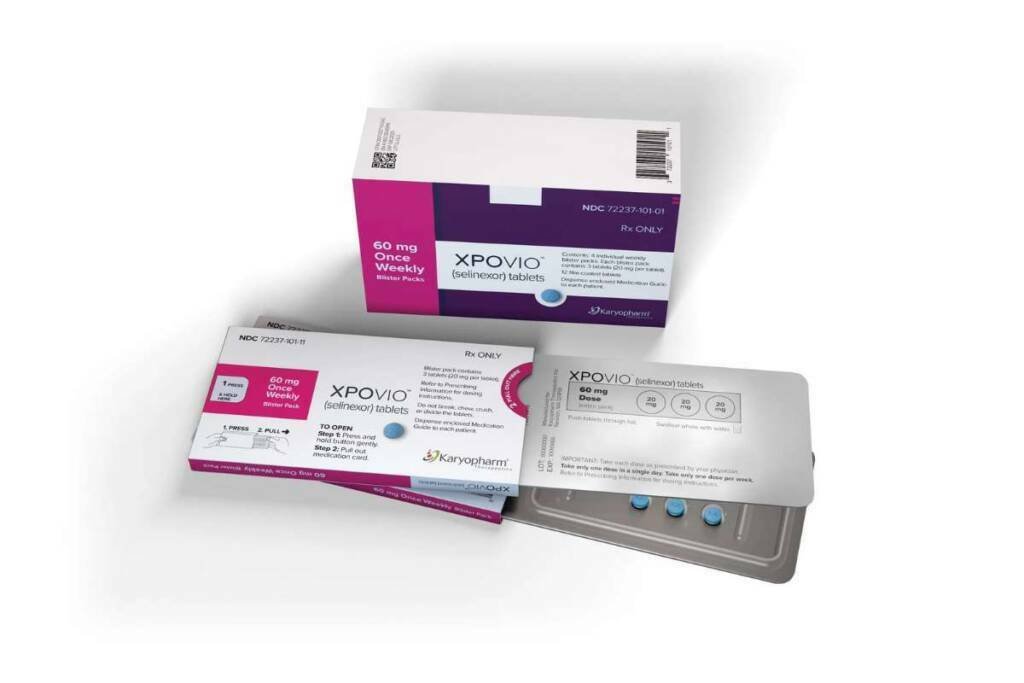Source – Karyopharm Therapeutics
The FDA has granted fast track designation to selinexor (Xpovio) for the treatment of patients with myelofibrosis, including those with primary myelofibrosis, post-essential thrombocythemia myelofibrosis, and post-polycythemia vera myelofibrosis.
The clinical development of selinexor in combination with ruxolitinib (Jakafi) for myelofibrosis began with the Phase I/II XPORT-MF-034 study (NCT04562389). Recently presented at the American Society of Clinical Oncology (ASCO) 2023 Annual Meeting, the study demonstrated that the combination was well-tolerated and showed promising activity in terms of spleen and symptom responses.
In the Phase I/II study, 24 myelofibrosis patients received selinexor at doses of 40 mg or 60 mg once daily, along with standard ruxolitinib in 28-day cycles. The primary endpoints included determining the maximum-tolerated dose, recommended Phase II dose, and adverse events (AEs). Secondary endpoints assessed were 35% spleen volume reduction (SVR35), 50% tumor symptom score (TSS50), overall survival, anemia response, AEs, objective response rate, and pharmacokinetics.
Related: SELINEXOR AND RUXOLITINIB’S PHASE III TRIAL IN JAKI-NAIVE MYELOFIBROSIS BEGINS
As of the data cutoff date of April 10, 2023, in the efficacy evaluable (EE) population, 83.3% of patients achieved SVR35 at week 12, 91.7% at week 24, and 100% at any time. In the intent-to-treat (ITT) population, SVR35 was observed in 71.4% of patients at week 12, 78.6% at week 24, and at any time in 85.7% of patients. TSS50 at week 24 was 77.8% in the EE population and 58.3% in the ITT population.
Regarding safety, treatment-emergent adverse events (TEAEs) occurred in more than 25% of the study population. Grade 3 or higher TEAEs included anemia, thrombocytopenia, and back pain, which affected more than 10% of patients. Common TEAEs of any grade were nausea (78.6%), anemia (64.3%), thrombocytopenia (64.3%), and fatigue (57.1%).
Clinical development of selinexor for myelofibrosis will continue with the Phase III XPORT-MF-034 study. This study will administer selinexor 60 mg in combination with ruxolitinib to myelofibrosis patients who are treatment-naïve to JAK inhibitor therapy. Approximately 330 patients will be evaluated.
Eligible patients must be aged 18 years or older and have myelofibrosis with measurable splenomegaly, an ECOG performance score of 2 or lower, adequate organ function, baseline laboratory values within acceptable limits, a life expectancy of at least 6 months, and active myelofibrosis symptoms. Patients should be ineligible for stem cell transplantation, willing to undergo bone marrow biopsy during the study, and agree to use contraception. Female patients must have a negative pregnancy test before starting the treatment.





























